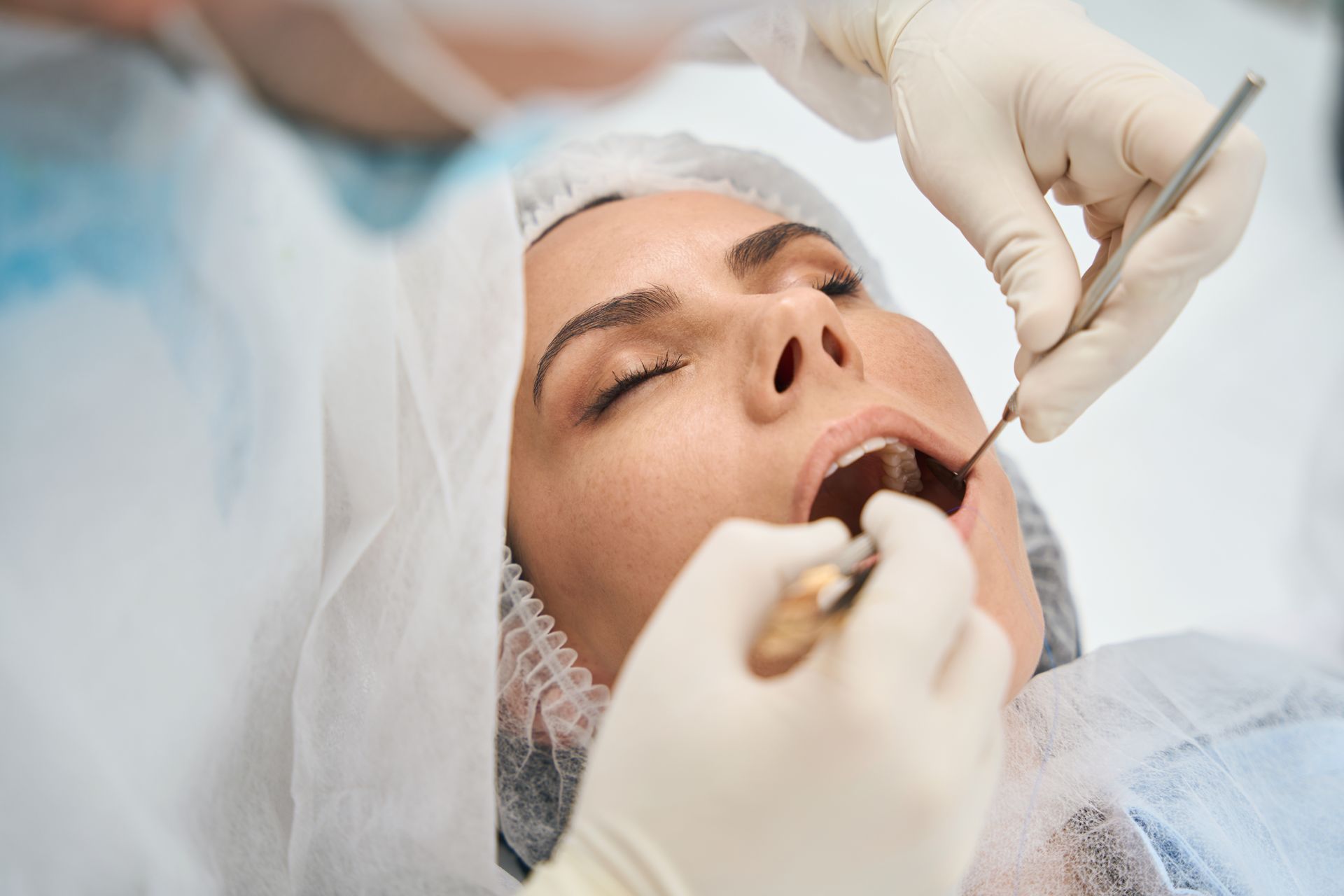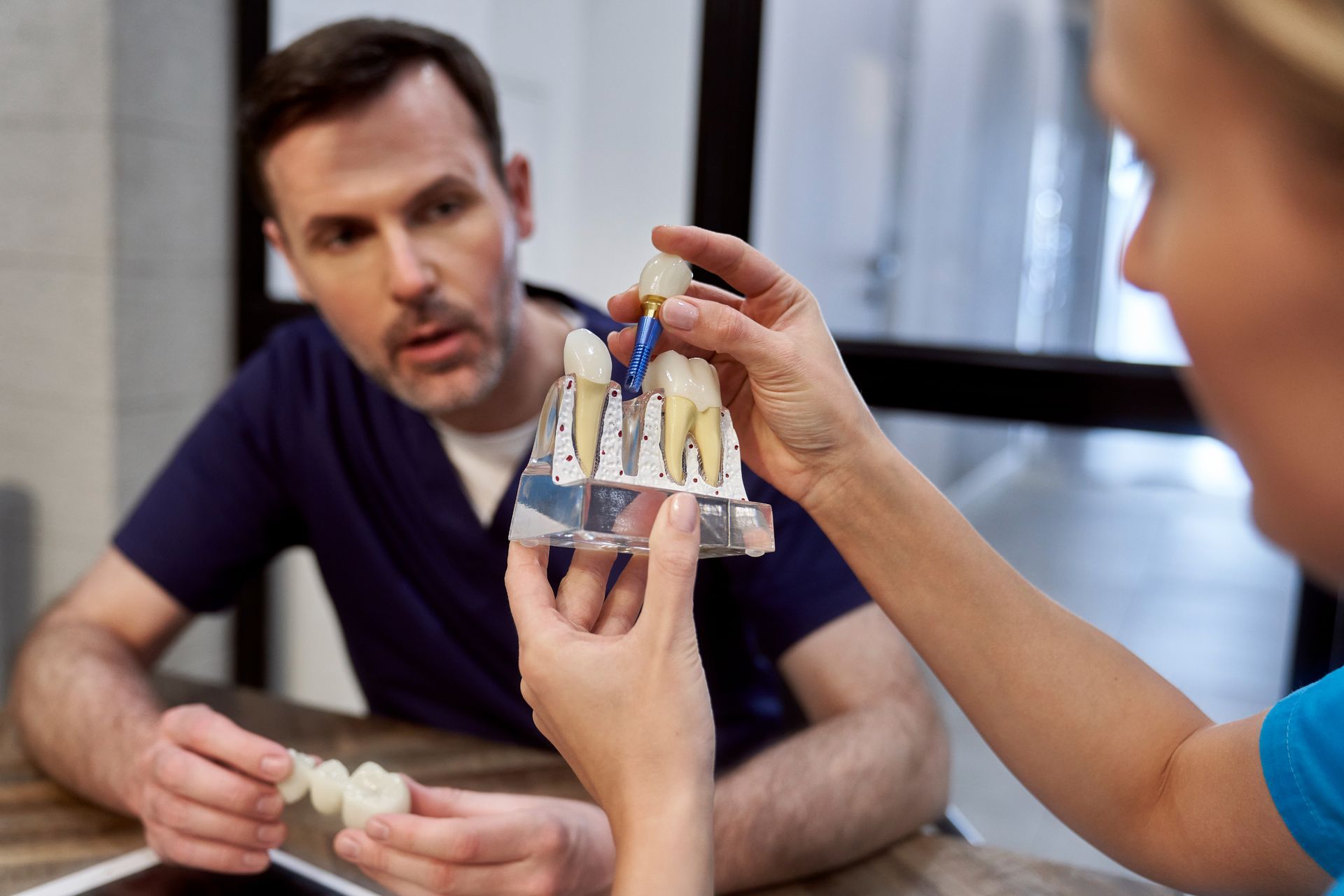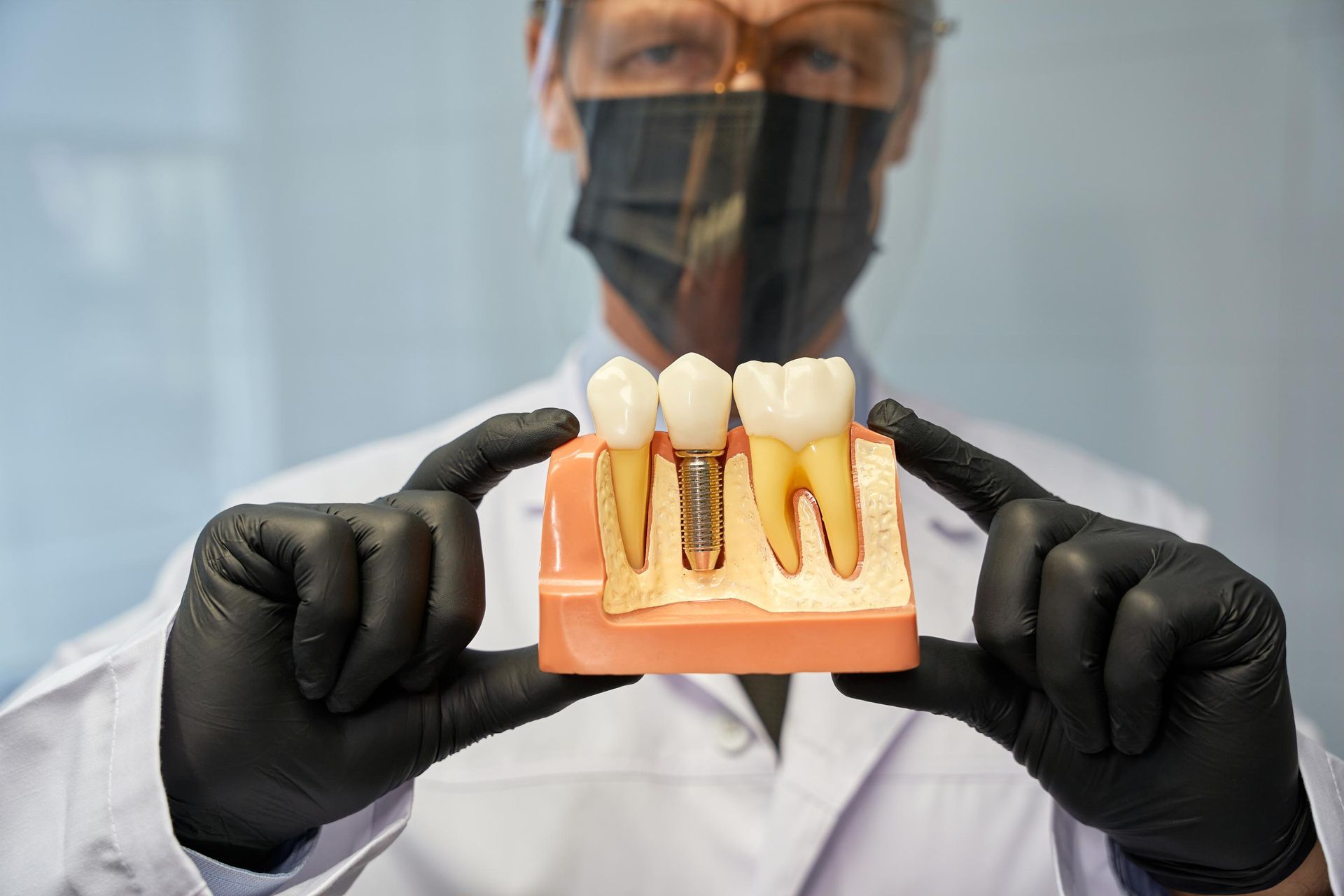April 15, 2025
If you're considering dentures, tooth extractions may be necessary to create a proper, comfortable fit. This process involves removing decayed or damaged teeth and is a vital step in preventing infections and ensuring long-term success with your new dentures. Why Tooth Extractions May Be Needed Tooth extractions are often required when teeth are severely decayed, infected, or affected by gum disease. Damaged teeth that cannot be restored may cause discomfort or pose health risks if left in place. Dentists may recommend full mouth extractions when most or all teeth are compromised. Factors like age, medical conditions, and previous dental work also play a role in determining the best treatment path. The Tooth Extraction Process Extractions are performed under local anesthesia, so while you may feel some pressure, there’s typically no pain during the procedure. In complex cases, an oral surgeon may be involved to ensure precise removal and safe recovery. Their specialized training allows them to handle challenging extractions, including impacted teeth. Soreness and swelling are common afterward, but manageable with proper care. Your dentist or oral surgeon will provide detailed aftercare instructions to promote healing. Immediate Dentures: A Same-Day Smile Solution Immediate dentures are prosthetic teeth placed right after extractions. These serve as a temporary solution while your mouth heals. They help you maintain your appearance, support your cheeks and lips, and protect healing gum tissue. Before your extraction, impressions are taken to custom-fit the immediate dentures. This allows you to leave the office with a full smile the same day. Benefits of Immediate Dentures Preserve facial structure and aesthetics Protect gums as they heal Maintain confidence and oral function during the transition Drawbacks of Immediate Dentures While convenient, immediate dentures are temporary and may require adjustments as your gums shrink and heal. Some patients experience mild speech changes or discomfort initially. After about 6–8 weeks, you’ll be ready for permanent dentures that offer a more stable fit. Healing After Tooth Extraction Healing time is crucial for proper denture fitting. While soft tissue generally heals within 1–2 weeks, full recovery—including bone stabilization—can take 6–8 weeks. During this time, follow-up visits are essential to monitor progress. Post-Extraction Care Tips Avoid smoking, spitting, or using straws for 24 hours Stick to soft foods and stay hydrated Use a cold compress to reduce swelling Avoid brushing the extraction site initially Follow your dentist’s care instructions closely Proper healing sets the foundation for long-term denture success. From Temporary to Permanent Dentures After the healing period, you’ll transition from temporary to permanent dentures. These are custom-made to fit your stabilized gums and improve comfort, appearance, and chewing function. Types of Permanent Dentures Full Dentures: Replace all teeth in the upper or lower arch Partial Dentures: Replace several missing teeth and anchor to existing ones Implant-Supported Dentures: Offer superior stability by attaching to implants. Options like All-on-4 provide a full arch of teeth supported by just four implants. Your dentist will help determine the best solution based on your oral health and lifestyle. Caring for Your Dentures Proper care helps extend the life and comfort of your dentures: Brush them daily with a soft-bristle brush and denture cleaner Soak them overnight in a denture solution Rinse after meals to remove food particles Store in water when not in use to prevent drying If dentures cause pain or bleeding, contact your dentist for adjustments. Emotional Impact of Tooth Loss Losing teeth can trigger emotional responses such as anxiety, embarrassment, or sadness. It may even affect your confidence and self-image. Immediate dentures can help ease the transition by maintaining your appearance. Support from dental professionals, family, or even support groups can provide reassurance and help manage the psychological effects of tooth loss. Tips for Coping Emotionally Seek counseling or join a support group Engage in self-care like meditation or hobbies Focus on the benefits of your new smile Talk to others who have undergone the same experience Building confidence takes time, but staying positive and proactive can make a big difference. Cost Considerations Costs for tooth extractions and dentures vary widely. Key factors include: Number of teeth being extracted Type of anesthesia used Complexity of the procedure Materials used for dentures General Cost Ranges: Basic Full Dentures: $1,200 – $2,000 Premium Dentures: $4,000 – $8,000 Immediate dentures may initially add to the cost, but they often prevent future complications and provide valuable short-term benefits. Insurance Coverage & Financial Planning Most dental insurance plans cover a portion of extraction and denture costs—often around 50%. Some medical insurance policies may also assist, depending on the procedure. To avoid surprises, contact your insurance provider to confirm what’s covered. Your dental team can also help you understand your benefits and explore flexible payment options. A Step Toward a Healthier, Happier Smile Tooth extraction is often the first step in preparing for dentures, particularly when teeth are too damaged to save. Immediate dentures offer an instant solution to restore your smile and confidence, while permanent dentures provide long-term function and comfort. By understanding the process—from extraction to healing to permanent restoration—you’ll feel more confident in your dental journey. With proper care, emotional support, and financial planning, you can move forward with a healthy, complete smile.
















